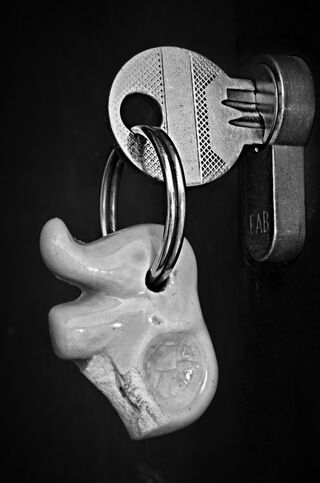Relationships
How Forgetting Can Damage a Relationship
The toll of relational amnesia and single-narrative relationships.
Posted May 21, 2021 Reviewed by Hara Estroff Marano
Key points
- When one partner constantly forgets, they essentially cast their partner as the memory holder, who may become bitter.
- A forgetful/remembering dynamic leads to a dichotomous, rigid dance, which breeds contempt, tension, and anxiety.
- Such a dynamic leads to a "single-narrative relationship" curated by the remembering partner, to which the amnesic partner must adhere.
- Fight to remember by writing things down, and dare to challenge your partner to a "two-narrative relationship."

Do you or your partner inevitably forget things that may be important to your partner in the relationship? Anniversaries, birthdays, fights, arguments, promises, errands? And if so, does your partner need to remember everything and feel the need to remind you and nag?
If so, this dance is limiting and hurting the intimacy in your relationship.
Why do people forget?
Young children often use the defense mechanism of forgetting in order to not remember things that may have been scary or traumatic. It is one of the most effective early defense mechanisms. It is very efficient, and when it erases a memory, it really erases it. For good and for bad.
As adults, some continue to forget things in intimate relationships as a way of not dealing with anxiety or pressure to perform. Others forget as a passive-aggressive move because it's not that important to them.
For those who default to relational amnesia, this can become a relational business card that they use when they form intimate bonds. This type of amnesia is, for the most part, most prevalent in their personal life, while at work they may have excellent memory or, at the very least, a very good system in place to help them not forget. Amnesia can be selective to relationships, despite protests of a lack of control.
Forgetting in intimate relationships
Serial forgetters create a complementary dance: One partner casts themselves as the “forgetful one” and the other must complement that role as “the one who remembers everything.”
Gains of forgetting:
- Avoidance of conflict. Since you don’t remember anything, you avoid conflict. You deflect heat. You're always innocent. No one can get really angry with you because “They’re just spacey. It's lucky their head is connected or else they’d forget it too."
- Exemption from responsibility. Your partner quickly learns to expect less from you, and therefore you have fewer relational burdens.
- Freedom to be invested elsewhere. You don’t have to be bogged down with many details and can be open-minded about other things.
- This often casts you as the playful, spontaneous partner who is fun-loving and vital. I call this the “upstairs” partner.
But the price of being the absent-minded partner is high.
- You are judged as not being invested enough in the relationship. Over time you are seen as arrogant, lazy, or just not loving enough.
- You are not respected. Eventually, your partner might begin to resent you or see you as a grown-up child who can’t (or won’t) take ownership of the relationship.
- Your partner may stop sharing, consulting, or confiding in you, because you don’t remember anyway.
- Your partner becomes rigid. Ultimately, the remembering partner often becomes concrete, cranky, lonely, and bitter, since they are forced to be the bookkeeper of the relationship. I call this the "downstairs" partner.
A single narrative relationship
But the biggest cost is that over time your relationship becomes a single narrative relationship. The remembering partner, who effectively is remembering everything in the relationship, begins to shape and curate the official narrative of the relationship, to which the amnesic partner must adhere.
Why is that a problem?
The partner who must remember everything is likely to become very concrete, nit-picking, and rigid. They are always right and know the “truth.” They can’t be as spontaneous and playful as the forgetful one, because someone needs to remember to pay the mortgage, or take the dog out, or change the diaper.
After all, next to every “upstairs” playful, spontaneous partner there is a “downstairs” (bitter) partner holding reality.
The downstairs partner often times becomes bitter and can’t let got. The single narrative relationship starts to color the forgetful partner in a negative, childish, irresponsible light.
And when they eventually choose to challenge the narrative and share their experience, opinion, or feeling, they may immediately get disregarded: “But you don't remember anything… Don't pretend like you suddenly remember…”
This leads to both partners experiencing pain and loneliness in the relationship, cementing the upstairs/downstairs dynamic.
How to remember more?
- Share this post with your partner and see if this dichotomous dynamic around relational memory applies.
- List the secondary gains and losses of forgetting/remembering. The secondary gains are usually the reasons that you maintain this dance. Prepare yourself for systemic change by addressing the secondary gains. Click here to learn how to manifest systemic change.
- Fight to remember. I'm assuming that you have the cognitive abilities to remember things, like you do so well at work (or else you’d be unemployed). Instead of seeing this as a character traits (or flaw), choose to see it as a habit or a defense mechanism that has gone too far. This helps you own your behavior and gives you more agency and hope for change.
- Write things down! Start small. Every day write 5 good things that your partner did that made you happy. Write 5 moments that you felt weren’t so great in the relationship. start writing down important dates, realizations you had, strong feelings that came up for you.
- Challenge your partner toward a two-narrative relationship. Begin a habit of sharing with your partner the things you have written down. Insist that your voice also be heard. Remember that subjective is the only real objective in relationships.
- Don’t expect applause from your partner. There will be ruptures and pushback when the astronaut finally lands and has a say.
If you follow these steps, you and your partner can slowly shape a joint subjective narrative that will bring you closer. The burden, responsibility, and joy of holding the relationship will be shared. The upstairs partner will be more present and responsible, which will help the downstairs partner go “up” and become lighter and more playful. Ultimately, this will lead to deeper intimacy, So don't allow yourself to keep forgetting; choose to remember.
Facebook image: Zmaster/Shutterstock




